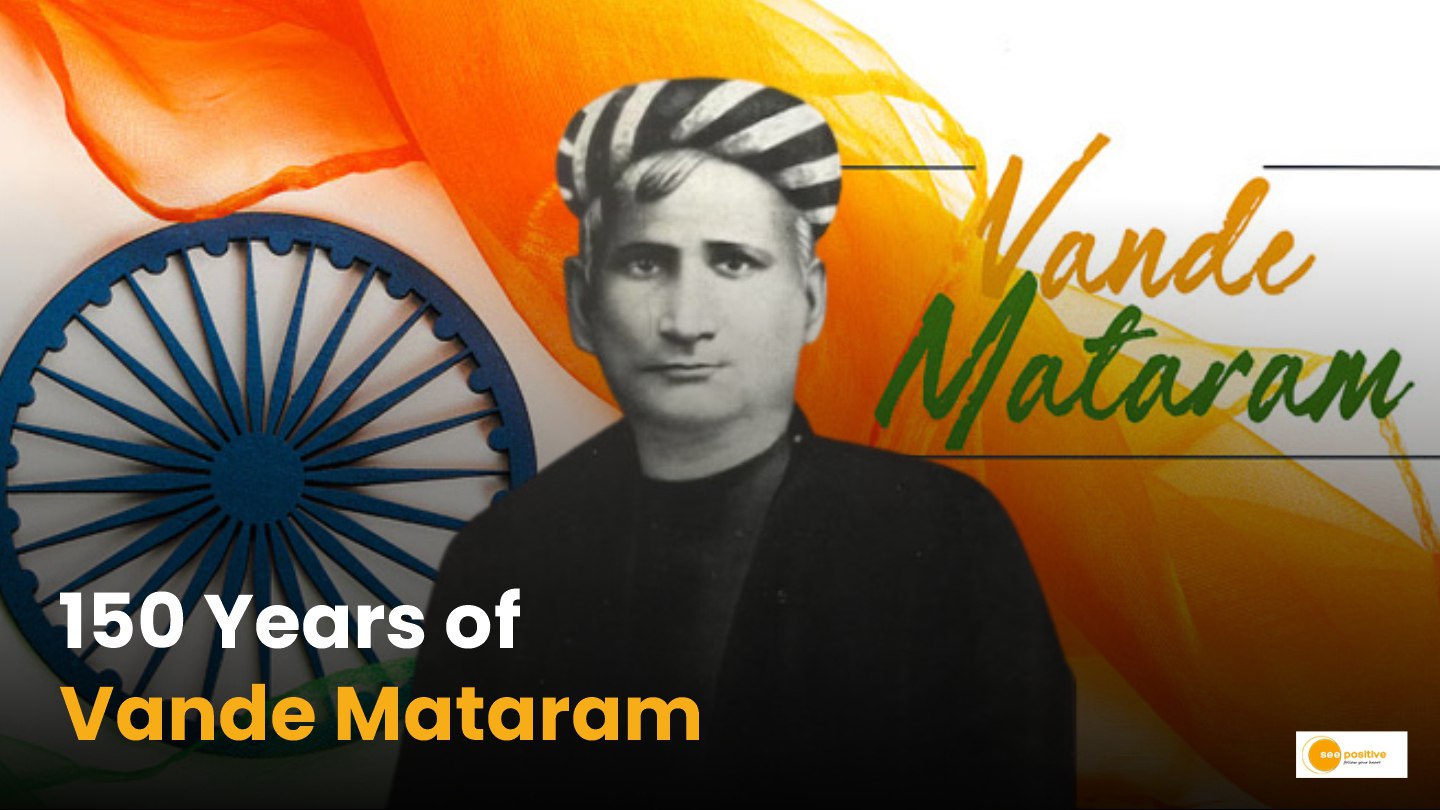In 2025, India marks a momentous milestone: 150 years since the first composition of the national song “Vande Mataram”. PM Modi Launches Year-long Smaron Utsav to Honour the National Song. The government has declared a year-long “smaron utsav” (memorial festival) from 7 November 2025 to 7 November 2026, celebrating this enduring hymn of the motherland.
The Poet and the Birth of the Song
Bankim Chandra Chatterjee penned “Vande Mataram” on 7 November 1875 – the day of Akshaya Navami.
A few key details:
- Born in June 1838 in Bengal, Chatterjee studied at Presidency College and later took up service in the British colonial government.
- He wrote the song in highly Sanskritised Bengali, blending poetic imagery of the motherland with the tradition of the temple hymn.
- The poem first appeared embedded in his novel Anandamath, serialized in Bangadarshan in 1881 and published as a book in 1882.
Chatterjee conceived the land as Maa Bhāratī — a nurturing, protective mother — and “Vande Mataram” literally means “I bow to thee, Mother.”
Roots in Revival and Resistance
The novel Anandamath is set against the backdrop of the Sanyasi Rebellion and the mid-19th century unrest in Bengal. The poem’s imagery of the motherland armed and divine drew from these narratives of resistance.
Freedom Movement Symbol
Over decades, “Vande Mataram” became more than literature — it became a rallying cry. It stirred the hearts of freedom fighters, was sung at Congress sessions, and faced censorship under colonial rule.
Modern-Day Commemoration
The year-long commemoration launched by the government recognized the song’s relevance for India today. On 7 November 2025, Narendra Modi inaugurated the celebrations, unveiling a commemorative coin and stamp, and launching a dedicated portal.
He described the song as “a mantra, a dream, a resolution and energy” and called the motherland the divine mother whom all citizens serve.
Smaron Utsav Aims to Achieve
- It seeks to rekindle the spirit of unity and devotion that the song symbolises, especially among younger generations.
- It uses mass-singing events, exhibitions, competitions in schools/colleges, and digitised portals to engage citizens.
- It reminds us that the motherland is not just a geographical territory but a shared idea — of respect, duty and collective endeavour.
Why It Matters Today
In an era of global change, “Vande Mataram” stands as a bridge between past sacrifices and future possibilities. As Prime Minister Modi noted: when India’s daughters excel in science, when the nation reaches for the moon, the chant rises again — “Vande Mataram!”
The 150-year celebration is more than a commemoration of a song — it’s a reaffirmation of India’s mission to build unity, culture and progress together.


